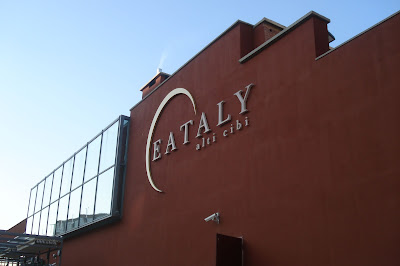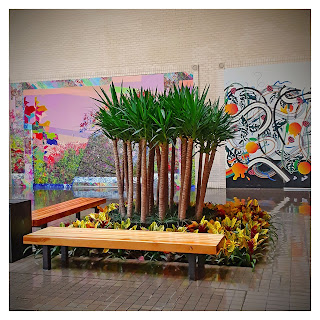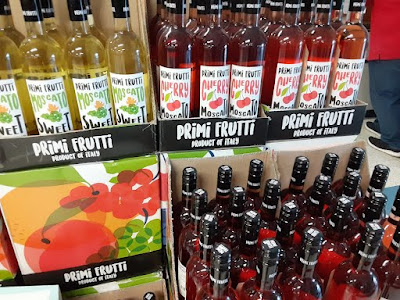Recent news from abroad has it that Eataly has had a change of ownership. Investindustrial, headed up by Andrea Bonomi, has acquired 52% (majority) share for about $200 million. Not a ridiculous amount for a concept that started almost 20 years ago.
Now, according to the website, Grocery Dive, Eataly is in “more than 40 locations in 15 countries including eight flagship stores in North America and 16 franchise stores across Europe, the Middle East and Asia.” Quite a jump from their initial shop in Northern Italy.
$200 million seems like a small amount for 40 locations. I wonder how much debt the original company might have piled up. Was that debt erased? Who, if anyone, walked away with millions? What changes will come about? Expect more expansion, and expect the Bastianich family will sell their shares, as part of the deal (as per The Financial Times).
In 2007, I’d heard about Eataly from friends in Italy, where it was getting some good buzz. It was autumn, and I was planning a wine buying trip to northern Italy. A colleague, who was from Torino, where the very first Eataly opened, suggested we stop in his hometown to visit, see a Juventus game and see Eataly, before heading into wine country. And that was how my fascination with Eataly began.
Since then, I’ve visited numerous Eataly’s around America, New York, Chicago and Los Angeles, to eat, to shop, and occasionally, even sell some Italian wine. I have gotten to know Eataly well. And when I heard the owners were planning on putting an Eataly in Dallas in 2020, in my home town, I was astounded. Why Dallas, when Houston, down the road, was touted as being so much more cosmopolitan and diverse? Why not Seattle, where the Italian wine and food scene thrives? Or New Orleans, which has a mosaic of food cultures (plus the tourism factor) that Eataly would surely dovetail into quite nicely. But Dallas? I was over the moon.
And then Covid hit.
The brass at Eataly went ahead and put it five miles from my home, in NorthPark Center, a beloved (and very upscale) shoppers paradise, even though we were looking at a very uncertain future. But Italy, and Italians, have faced uncertainty at every bend and turn of their history. Something in the Italian DNA sees adversity as a challenge, and banking on resilience to make it through the worst times. I learned that from my grandparents, and my mom and aunts and uncles.
With time to reflect during Covid, I began to envision this long-time connection between Dallas culture and their love for all things Italian.
When I moved to Dallas in 1978, I went to work down the street from the now-Eataly at a then-iconic Italian restaurant, Il Sorrento.
Il Sorrento was the lovechild of Mario and Irene Messina. Mario was creative force, and Irene made sure all the bills got paid, and the money grew. Mario was inspired to create a dining experience in Dallas that was missing. As Craig Claiborne wrote in the New York times about Dallas dining: “Years ago I would have summed up the restaurant scene here in a phrase: ‘Not worth a detour.’ There were dozens of barbecue restaurants and places where you could eat Tex-Mex cooking, but these were prevalent throughout Texas.”
Yeah, Tex-Mex and barbecue. Still rocking Dallas. But Mario Messina was a visionary, and he had a dream.
In the Swinging Sixties he started the first of what would be the beginning of the Italian wave of dining. He actually used the word cucina rather than the more popular French word cuisine. He brought espresso (and the machines) to these parts, made his own bread, had his own pasta making room, a wine cellar with female sommeliers (replete with “uniforms” comprised of short shorts ala Dallas Cowboy Cheerleaders). On and on, tableside service, Caesar Salad and Fettuccine Alfredo made to order, strolling musicians, fortune tellers, lounge singers in a sultry bar setting, bread boys rushing out hot fresh bread (as soon as you finished the one you just got) and much, much more. Il Sorrento was Mario Messina’s grand opus.
It’s long gone, except in the minds and hearts of the dinosaurs who remember how impossible it was to get a decent espresso or a ball of fresh mozzarella. Now, all of that is behind us. And here comes Eataly, gilding the lily of our Italian obsession.
In a way, it was a vindication of all the efforts people in Dallas have given, from Mario Messina at Il Sorrento (whose gravesite overlooks Eataly) to the Paul and Mike Di Carlo (of Jimmy’s, Dallas) and all the purveyors, vendors and lively hearts that got the attention of the folks in Torino for a big little town in the west called Dallas.
 |
| 7:00 AM - Mike DiCarlo of Jimmy's in Dallas |
From my initial flirtation in 2007 in Torino to now, 2022, in Dallas, 15 years later we have one in the place I call home, Dallas, Texas. And while my loyalty is to my local retailer (Jimmy’s, first and foremost), I thought it was an exciting thing to see, especially the restaurant side. When I came to Dallas in 1978 from California, I was a stranger in a strange land. This place was starting to look like home, 42 years hence. Better late than never.
Now word comes that a global private equity firm has the reins. Oh, they sent out a press release assuring folks that these changes won’t subvert the mission of Eataly. I’ve worked for family companies and corporations that were “taken over.” Nothing ever stays the same.
Look at Whole Foods. I’ve seen my local Whole Foods store become transformed from a New Age grocery, which I once recognized, into a company that now stacks White Claw, high and wide, in the aisles.
What might we see in the future from Eataly? Primi Frutti flavored Italian Moscato? Wait, you can already find that stacked at local liquor chains here.
In reality, the local Eataly is looking more like an alter-universe of Italian wine. There is an orange wine section. Attention is paid to small producers. Two friends messaged me recently, with encouraging news of their products receiving great receptions at the Dallas Eataly. Let’s hope that small, independent streak is allowed to continue.
And looking at the shelves, so many faces of folks I worked with over the years. They aren’t just bottles, they are lives, with some of them now in their 3rd and 4th generations. History. Nostalgia? Perhaps. But also, the notion of passing the tradition from one generation to the next.
Eataly is now entering its 2nd generation. What should we expect? Look to Italy for answers about Eataly, I’d say. And right now, Italy is convulsing and undergoing some potentially extreme changes, politically, economically and socially.
Same ‘ol same ‘ol? I mean, we could say that about Italy, for it knows about disruption. It might even feed on it, grow from it. And likewise with Eataly. I am hopeful. But I don’t have a dog in the fight anymore. I’m sitting on the dock of the bay.
But I like the developments I’ve seen in the elaboration of Italian culture in little ‘ol Big D. Finally, I can get a decent espresso, a wonderful gianduja gelato, great Prosciutto, and wonderful mozzarella, both local and from the motherland. Yeah, this is the land of milk and honey. I just hope the good times keep rolling. We need the Italian ambassadors of food and wine. now more than ever.
We will see. As Zimmy said, “The times they are a changin’.”
 |
| T.G.I.F. |







